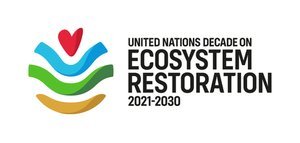In Central Greece’s mountainous regions, numerous ecosystems have been altered by human activities and changes in land use. Such activities have led to the endangerment and in some cases extinction of local species and the degradation of their habitats. In the areas of Mt. Oiti National Park and Oros Kallidromo (two Natura 2000 sites), intensive grazing paired with the prohibition of grazing in other areas, waste dumping, off-roading activities, wildfires and the lack of or inadequate forest management are several examples of human-driven activities that have resulted in ecosystem degradation.
In the context of the European LIFE+ programme, the Hellenic Society for the Protection of Nature (HSPN) introduced and coordinated the LIFE For Open Forests project, in collaboration with the National and Kapodistrian University of Athens, HAO DEMETER (Institute for the Mediterranean Forest Ecosystems), the Region of Sterea Ellada and the NGO ARCTUROS. Starting in 2012 and completed in November 2019, the project aimed at regenerating and protecting the rich biodiversity in the high-altitude meadows of Mt. Oiti National Park and Oros Kallidromo.
LIFE For Open Forests aimed to protect, maintain and enhance forest openings, restore and protect Mediterranean temporary ponds and Juniperus foetidissima stands (a local juniper tree). It furthermore aimed to improve the population numbers and habitat of Veronica oetaea (a highly localised endemic plant which is a priority target for conservation), brown bears and five bird species. The project began by identifying the key action areas in order to restore and conserve the local ecosystems properly, followed by a series of restoration activities, each focusing on a different element of the mountainous ecosystems.
The abandonment of traditional farming practices in the highlands of the two mountains had led to reduced grazing. Without grazing, fir forests were able to expand unchecked over the years, reducing the area of mountain grasslands, thus impacting the species that such open forests host and the critical ecosystem services they provide. As part of the LIFE for Open Forests project, healthy grazing management regimes were reintroduced, and their implementation has in turn led to the restoration of vegetation composition and ultimately of the habitats’ quality.
Fir forest expansion also suppresses Juniperus foetidissima, a local juniper tree whose forests are listed as a priority habitat under the EU Habitats Directive. HSPN and other project partners implemented fir forests suppression activities and reintroduced and planted Juniperus foetidissima saplings to increase the size of this priority habitat. Since wildfires are an ever-present and growing threat to forests in Greece, new fire protection infrastructure was set in place, and designated camping and recreation sites were created to reduce the danger of accidental fires by visitors.
Also present in Mt. Oiti National Park and Oros Kallidromo were Mediterranean temporary ponds, a rare habitat type considered a priority for conservation under the EU Habitats Directive. Temporary ponds on both mountains were highly impacted by forest expansion and human activities including illegal waste disposal, off-road driving and trampling by humans and grazing animals that caused soil compaction, pollution, an increase of nitrates and hydrological cycle disruptions. In order to protect these rare habitats, fences were put in place to prevent trampling and pollution around the ponds and HSPN and the project partners reintroduced keystone ecosystem species and removed some of their direct competitors. Moreover, the project established a seed bank of such keystone species and developed methods for their propagation and survival to ensure the possibility of reintroduction in case of local extinction.
Fencing of Mediterranean temporary ponds (priority habitat 3170*)
Field work in Mediterranean temporary ponds (priority habitat 3170*)
In addition to its focus on local habitats and flora, LIFE for Open Forests also set goals to support the local fauna by protecting and enhancing the local bird species population. Forest expansion had reduced the foraging habitat of the rare Tengmalm’s owl and rock partridge, and the intensification of forest management and deforestation had reduced the nesting sites for woodpecker species in some areas. LIFE for Open Forests addressed these issues by installing nesting boxes for the owls, clearing feeding sites for the partridges, and implementing forest management guidelines to ensure the preservation of old trees and dead wood. All in all, the project facilitated the enhancement of the birds’ population size and managed to expand the size of their habitat.
Monitoring of artificial nest boxes
Field work in a dry Mediterranean temporary ponds (priority habitat 3170*)
Field work monitoring
Finally, Mt Oiti is the southernmost limit of brown bear distribution in Greece. To prevent human-induced mortality of this priority species, and to support and protect the small population of brown bears in the area, it was important to minimize the contact and conflict between bears and humans. To support this objective, Hellenic Livestock Guarding Dogs were distributed to shepherds, beekeepers were provided with electric fences to prevent bear damage, 1,000 wild fruit trees were planted to provide alternative food sources for brown bears, and intensive education and awareness-raising activities were held for local producers and inhabitants.
In addition to scientists and experts from several different fields and organizations, LIFE for Open Forests also involved another important group of stakeholders: the local communities. A local Stakeholders’ Committee was established and met regularly, receiving updates on the project’s progress and offering comments and opinions. The involvement of the Stakeholders’ Committee was highly important in the decision-making around the project, as local producers for example were concerned by some of the LIFE For Open Forests restoration actions. Dozens of training seminars on grazing management, restoration basics and area governance were held for local producers and inhabitants.
Local schools were also involved in the restoration process through environmental education activities. Members of the project team visited schools in the area and organized five one-day educational excursions to both mountains, which involved more than 350 primary and secondary school students. Finally, the project organized numerous seminars for local educators about the importance of environmental education and the preservation of local ecosystems.
The Hellenic Society for the Protection of Nature is also involved in other Ecosystem Restoration projects, including the LIFE for Lesser Kestrel Project, the POSEBEMED2 Project, and the Life PRIMED Project.
If you would like to learn more about the UN Decade on Ecosystem Restoration and how you can get involved, please visit the following link. You can also find out more about LIFE For Open Forests by watching this documentary.
This article is part of our UN Decade on Ecosystem Restoration series which highlights the projects and activities of FEE members that contribute to the UN Decade.






